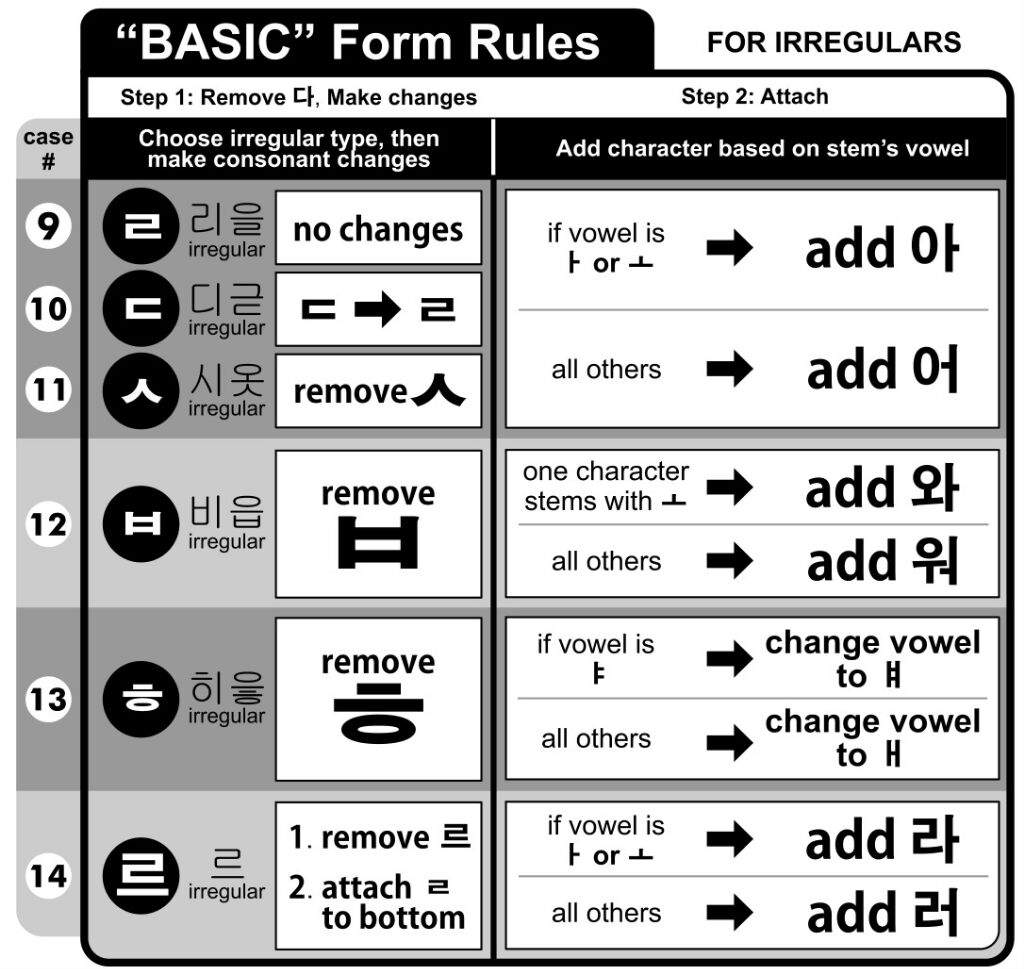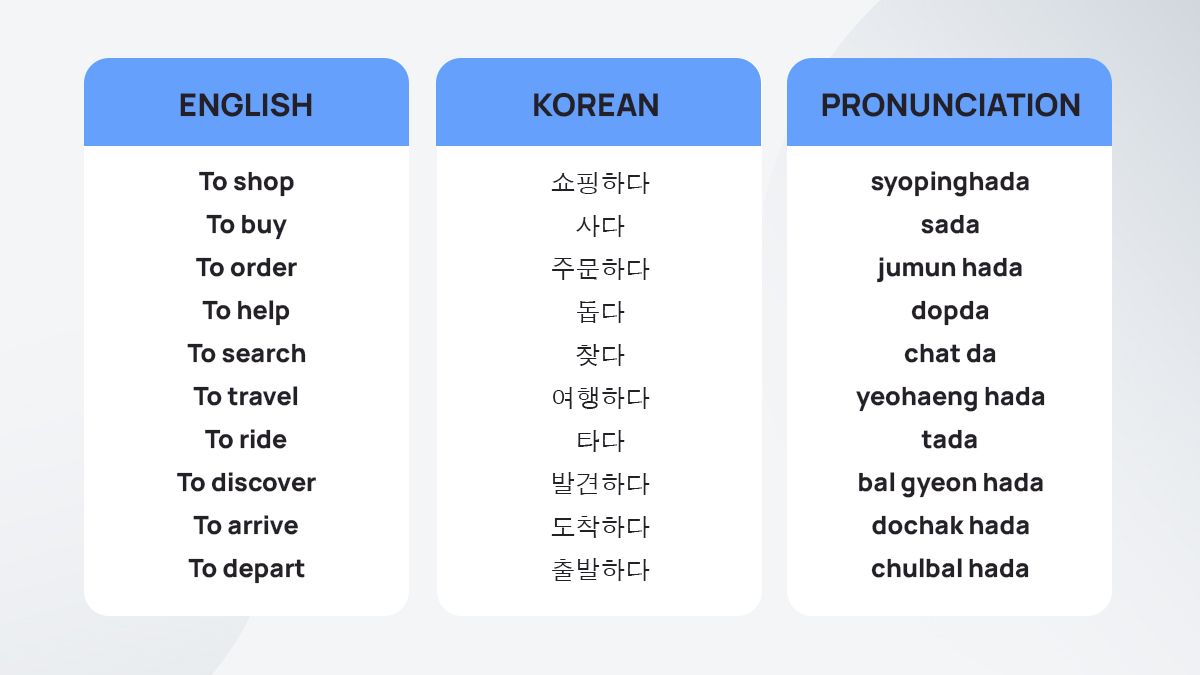Korean Verb Endings - Web 8 jan 2019 nbsp 0183 32 Most Basic Korean Verb Endings Is am are To have To exist and Not to have To not exist V or
Korean verbs are typically classified into four categories action state or description existential and the copulas Action or processive verbs involve some action or internal movement For a list of Korean action verbs see wikt Category Korean verbs Stative or descriptive verbs are sometimes called adjectives For a list of Korean stative verbs see wikt Category Korean adjectives
Korean Verb Endings

Korean Verb Endings
The modern standard of word classification and the one taught in public schools was chosen by South Korea's 1963 Committee on Education. This is the 9 pumsa (9품사) system, which divides words into nine categories called pumsa. The 품사(品詞) pumsa, also called 씨 ssi, are themselves grouped together according to the following outline.
Web 6 mrt 2016 nbsp 0183 32 Recently I was working on creating an online basic Korean grammar course and for that I compiled a list of the most basic and most important Korean language
Korean Verbs Wikipedia
Web 1 jun 2020 nbsp 0183 32 In Korean infinitives simply end in Such as to eat So to conjugate a Korean verb the first step is to separate the verb stem from the ending In this post you ll learn everything you need to know about Korean verb conjugation including the

Korean Irregular Verbs Conjugation Chart Learn Korean Alphabet
Web 22 feb 2022 nbsp 0183 32 Like English verbs Korean verbs change their endings and take auxiliary words to fit the tense when an action occurs and mood statements vs commands vs

1000 Images About Korean On Pinterest Opposite Words Texting And
Korean Verb Conjugation
Most Important Basic Korean Grammar Patterns TOPIK GUIDE
Web 38 rijen nbsp 0183 32 The following endings are either in formal either unconjugated If you want to make sentences you have to conjugate them at what tense you want or if you

A Guide To Korean Verbs For Beginners 2023
Web 10 mei 2021 nbsp 0183 32 Korean Verbs In Korea a verb is called They have 4 different classifications namely active descriptive existential and copulas All these verb classifications are made up of a verb stem and a suffix
Web 22 feb. 2023 · One of the unique features of Korean verbs is their use of verb endings. In Korean, the verb ending changes depending on the tense, mood, and politeness level …
Korean Grammar Wikipedia
Web 18 jan 2016 nbsp 0183 32 The grammar pattern is Verb When you use this verb ending it sounds like you have really good Korean skills In my personal

Korean Conjugations Korean Words Learn Hangul Korean Language Learning

This Post Lays Out A Method For How To Learn Korean By Using Only 4
Korean Verb Endings
Web 10 mei 2021 nbsp 0183 32 Korean Verbs In Korea a verb is called They have 4 different classifications namely active descriptive existential and copulas All these verb classifications are made up of a verb stem and a suffix
Korean verbs are typically classified into four categories action state or description existential and the copulas Action or processive verbs involve some action or internal movement For a list of Korean action verbs see wikt Category Korean verbs Stative or descriptive verbs are sometimes called adjectives For a list of Korean stative verbs see wikt Category Korean adjectives

Korean Verbs When And How Are They Conjugated

Pin On Korean Vocabulary
Korean Verbs Patterns

Korean Conjugation Your Complete Guide To Verb Endings

Korean Verbs Alchetron The Free Social Encyclopedia

